College of Education’s Merve Basdogan teaches elders about devices and online safety.
The conference room at Carillon Senior Living held several round tables, each accommodating three to four senior residents sharing stories about grandchildren, current health issues, their latest excursion – and their take on technology, something not all were completely comfortable with. No matter their level of confidence, this group was ready to learn.
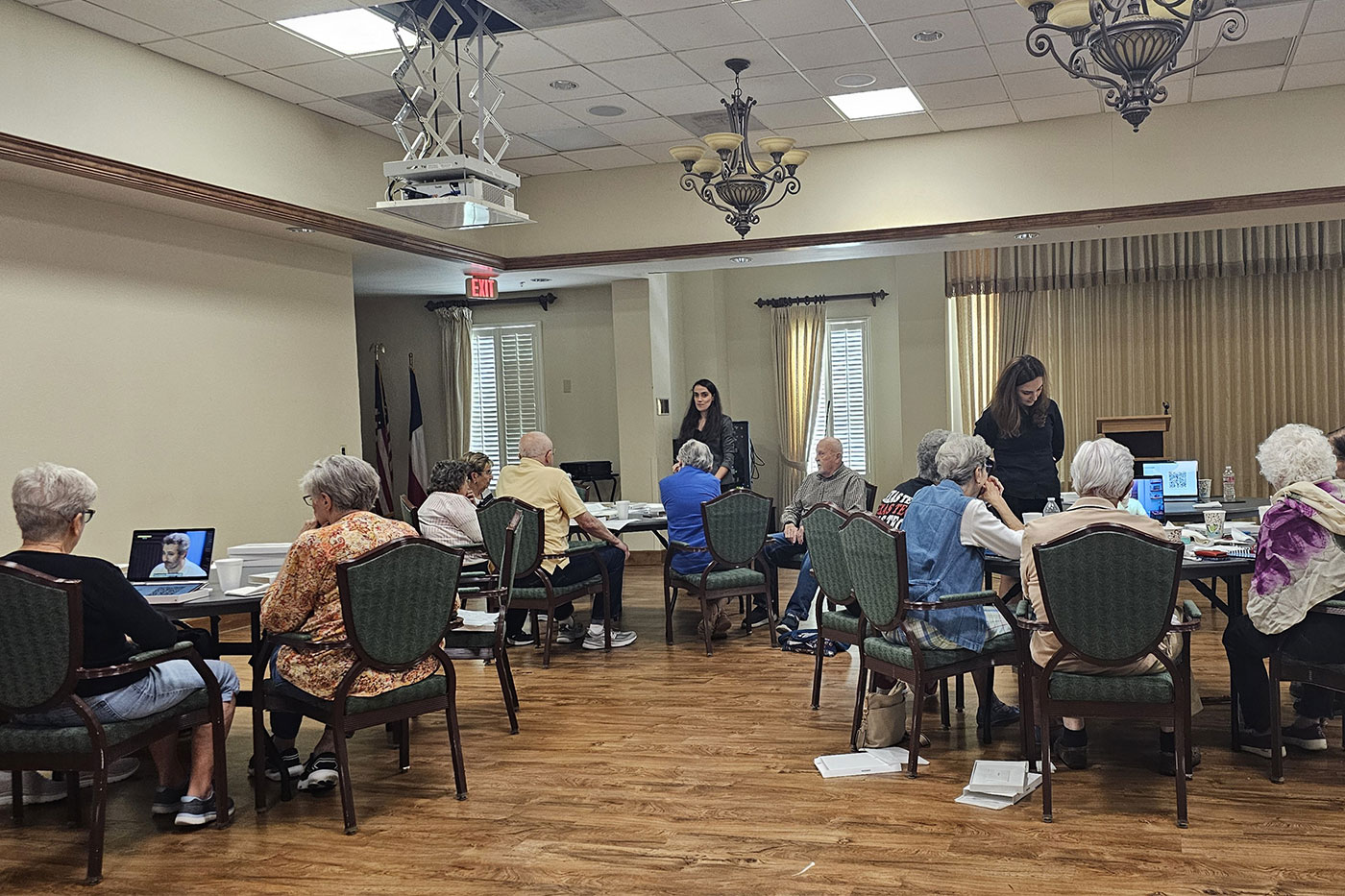
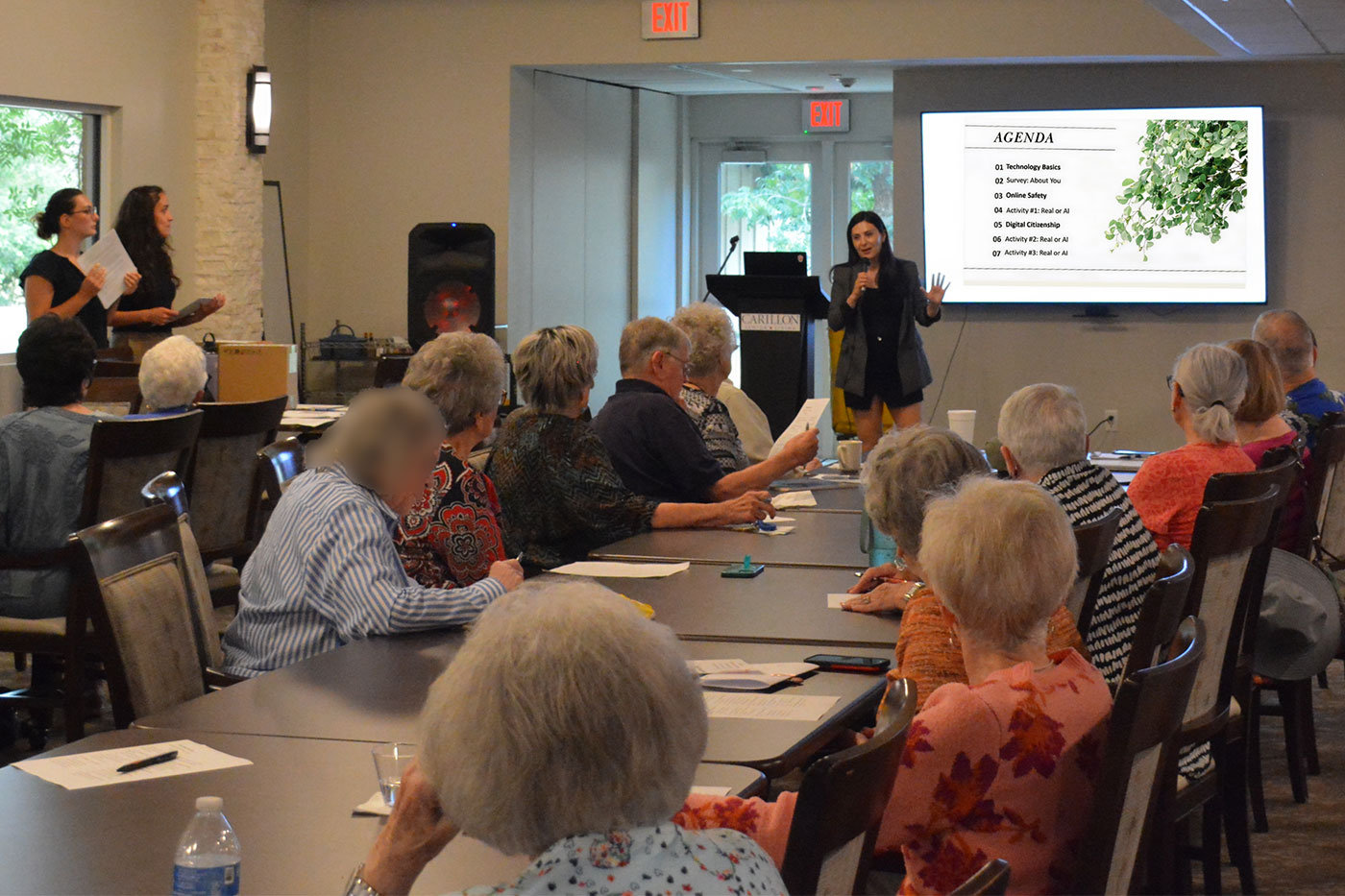
And learn they did, from someone who, for her entire adult life, had been teaching technology to people older than she.
Merve Basdogan (pronounced MARE-vay Bahs-DOH-gan) is an assistant professor in the Department of Curriculum & Instruction in Texas Tech University’s College of Education. Basdogan studies technology-enhanced learning. Her main focus is how to make online learning, digital learning and distance learning more engaging and motivating.
When she came to the United States from Turkey in 2015 to pursue a doctorate at Indiana University, the only way she had to communicate well with her parents was by Skype – high-tech for the time, but now a retired platform, edged out by more popular options. Even when she was living with them, she helped troubleshoot problems like internet connections. After she departed, she still found herself on video chat, describing technological tools or ideas they needed to learn – only because the issue was part of their daily living – not because they had any great desire to learn about technology.
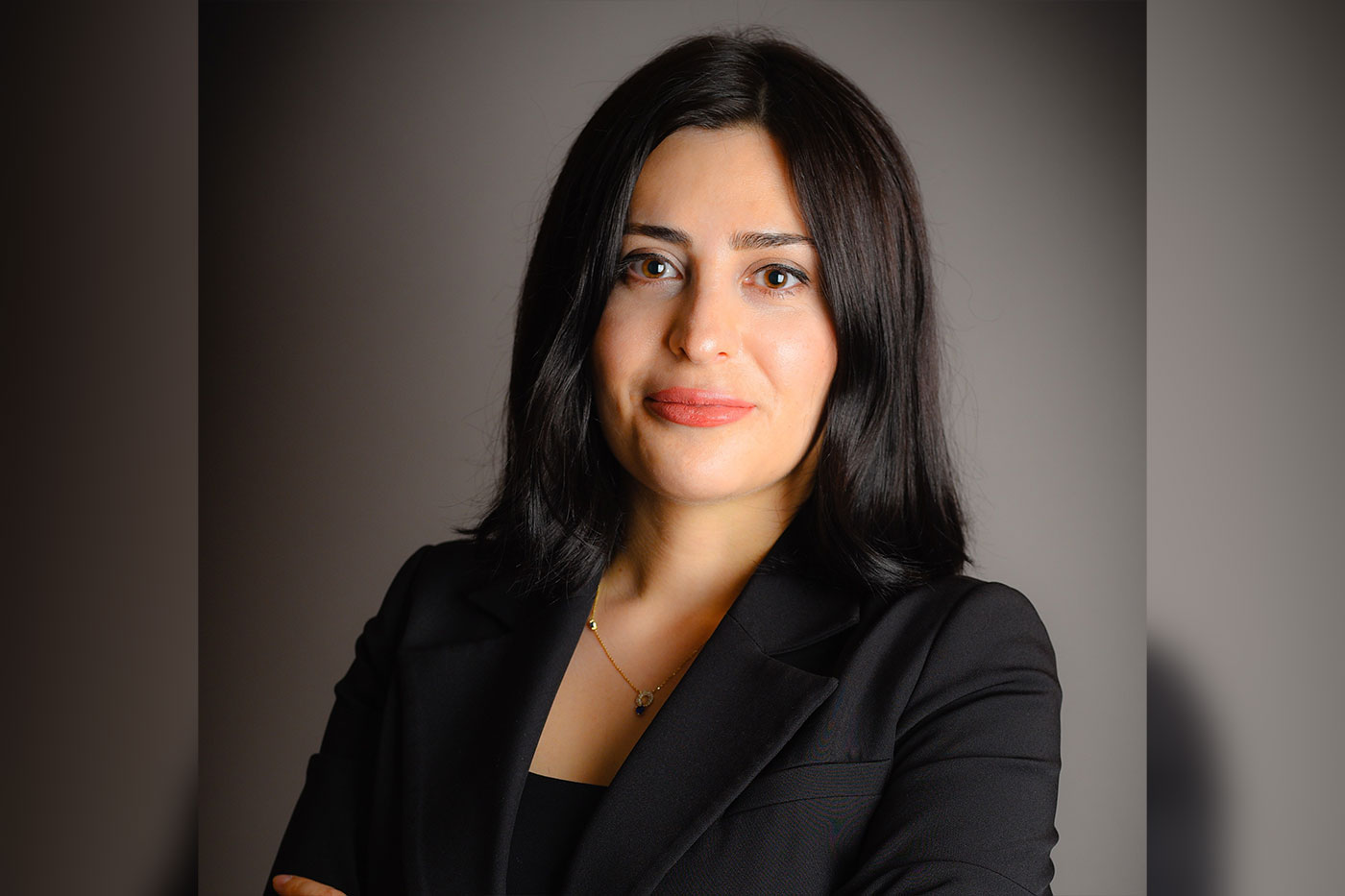
Basdogan earned both her undergraduate and master’s degrees in educational technology and has published more than 20 scholarly articles in academic journals. She also wrote the book “The Perils of Social Media: Cyberbullying, Shame, and Fame.” Yet, despite her academic success, she faced an unexpected challenge at home.
“It was so frustrating,” she said, her sigh turning into a smile. “Here I am teaching people, training people, but I couldn’t teach technology to my own parents.”
Being at a distance and helping them navigate those issues foreshadowed her current community outreach and research at Texas Tech, teaching older adults about digital trust: navigating devices and staying safe while using them.
During her early lecture works, a majority of her scholarship focus was on online learning design, how one can design asynchronous platforms to be more engaging and motivating for adult learners. However, when she says “adult learners,” she means anyone from college students to faculty members of all ages. The specific demographic of senior adults wasn't on her radar until shortly after she came to Texas Tech from Indiana University a little over two years ago.
She was told of a small $25,000 grant opportunity from the AT&T Foundation for digital literacy and safety. She applied for and received the funding, and in 2024 she conducted research with a mentoring focus, connecting teacher candidates with people older than 65.
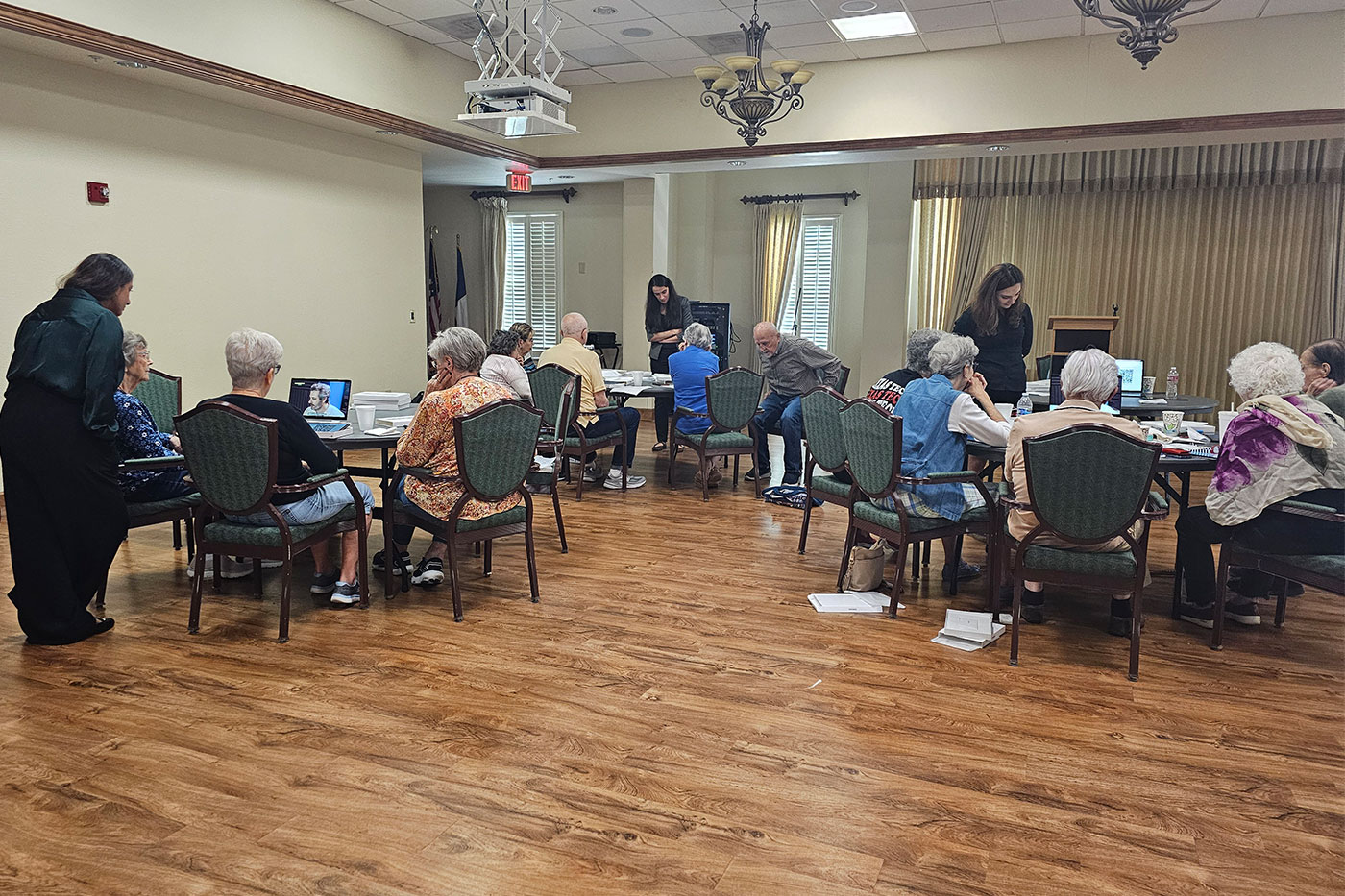
“Actually, it sounded very exciting because intergenerational learning is a component I believe is so valuable in that project,” she said. “My idea was the teacher candidates are digital natives. They are going to teach a lot of kids, but at the same time the world is aging; they are going to work with older teacher colleagues or deal with parents or grandparents of their students. So maybe if I connected them, the teaching candidates would help the elders with technology and the elders would share life lessons and their own experiences.”
After the success of the initial project, Basdogan earned an additional $50,000 from AT&T to develop digital trust workshops. In August and October, Basdogan and her research team—composed of Instructional Technology doctoral students Deniz Unal, Ibrahim Akdilek, Ceren Gokmen and Shehnaz Mohammed—held two consecutive workshop sessions at Carillon. Together, they provided digital literacy training to 46 adult learners older than 60.
The four instructional technologists are facilitators, walking around answering questions and troubleshooting for the attendees.
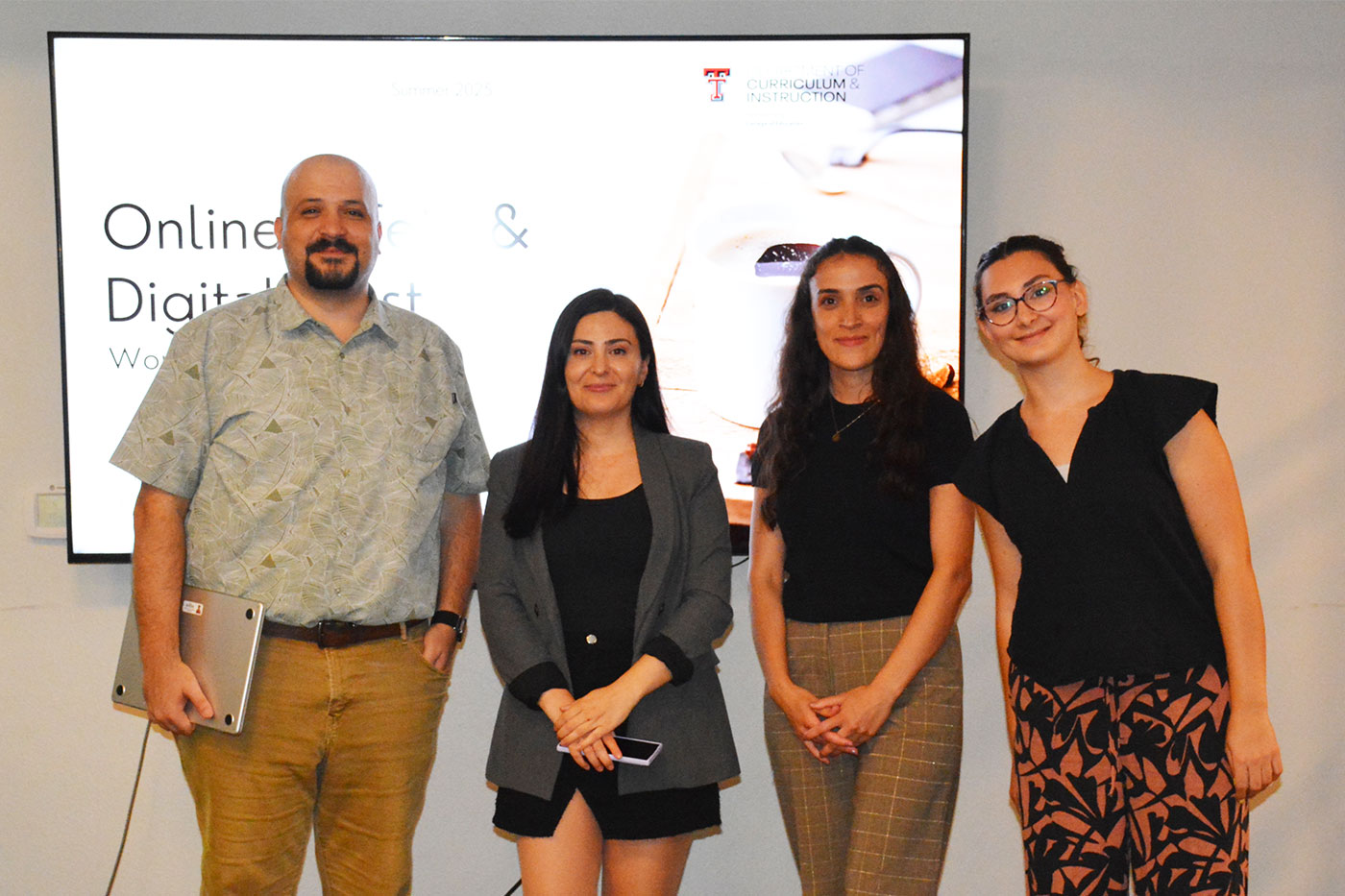
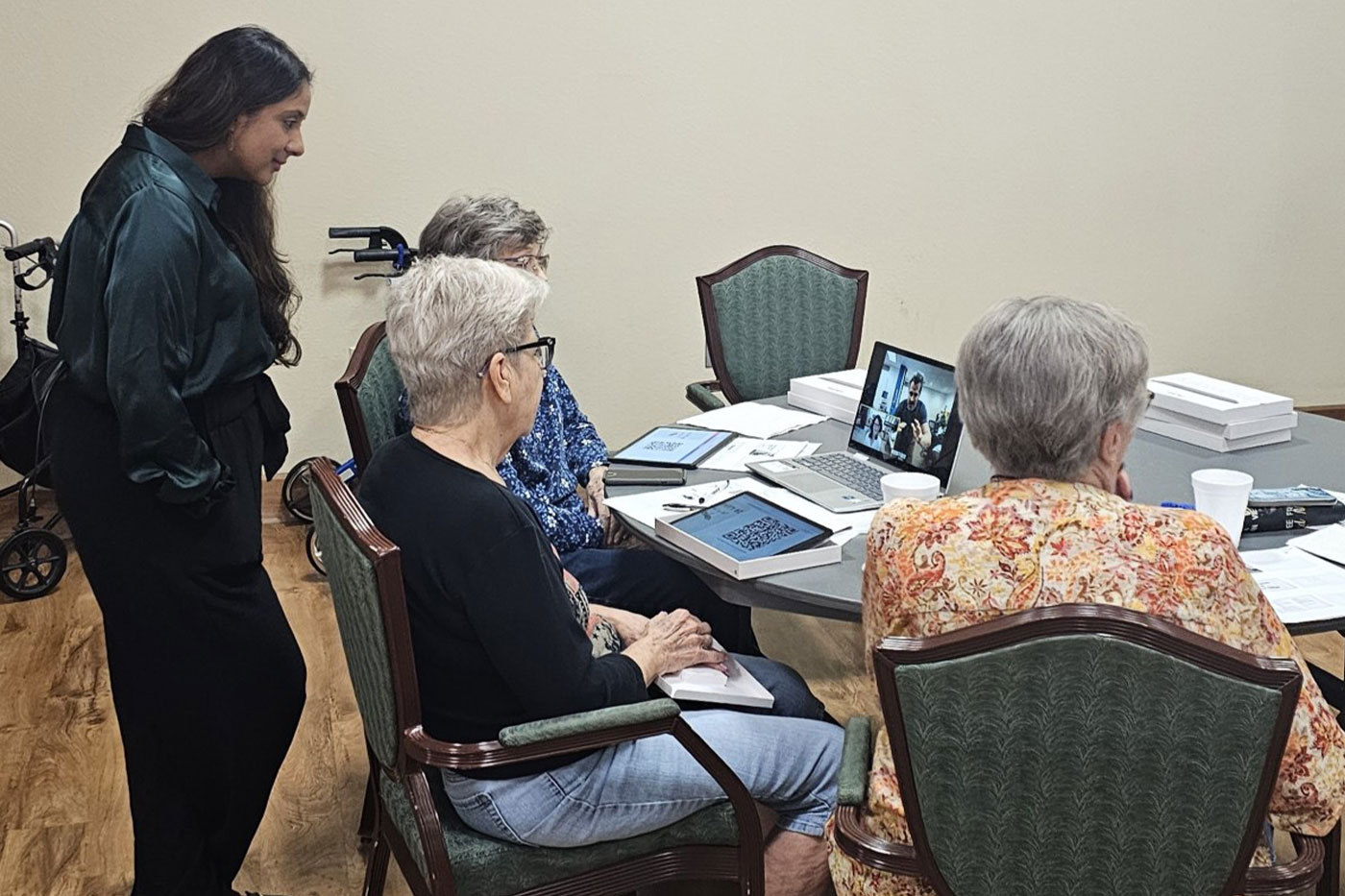
The graduate students also collect demographic data and record the participants’ feelings after the session. What were the challenges? What worked or didn’t work for them? These ethnographic notes – the scientific description of peoples and cultures with their customs, habits and mutual differences – are collected to understand exactly what the best instructional design is to help get the most out of subsequent sessions.
Designed for adults over 60, the 2025 program’s aim is to strengthen digital confidence, have participants explore how to recognize misinformation, disinformation and malinformation and practice strategies for spotting fake content, avoiding scams and staying safe online.
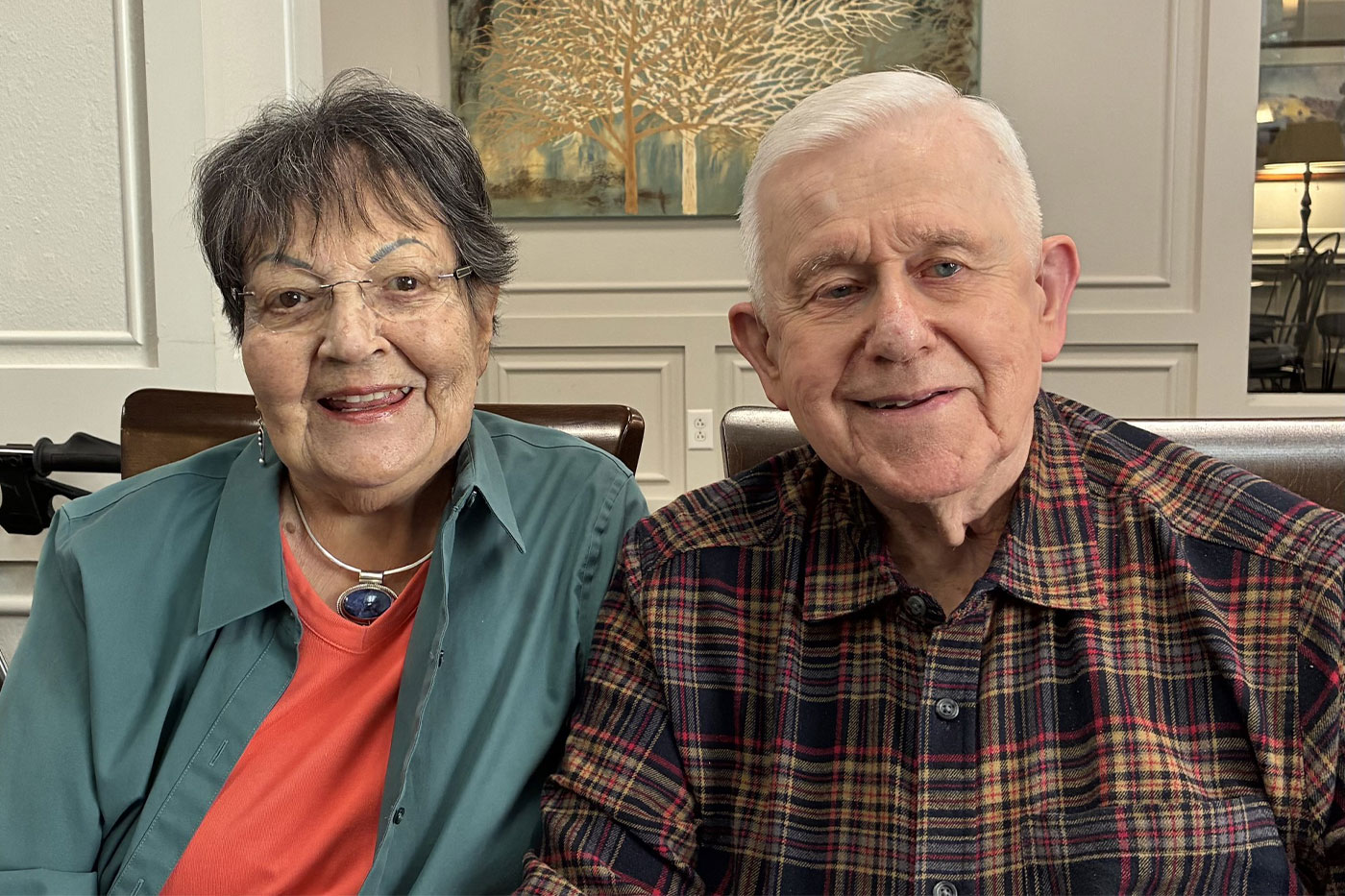
Helen Musiak is a Carillon resident along with her husband Tom, who is a retired Texas Tech professor in Landscape Architecture. Helen attended the mentoring session last year, and they both took part in the group workshop in mid-October. The 89-year-old was interested in refreshing and updating her computer skills after a lengthy period of inactivity.
“When I retired in 2000, I became very involved with the Property Owners Association where we lived at Ransom Canyon,” Helen explained. “Being one of the board members, I did a great deal with a computer. When we moved here, I just didn't do anything on it except write letters and that kind of stuff. But I had forgotten so much; this was an opportunity to bring something back in my life that I could use again.”
Basdogan has found that for elderly people, learning is all about internal motivation.
“They have to find a reason to learn. If they don't see the connection or meaning for their daily life, they are not going to learn,” Basdogan said. “I also discovered they actually like the group work more than the individual learning. When you include a few more people, they are more eager, more talkative. They encourage each other.”
The research is also about how to teach people who have physical challenges that come with aging, like sight and hearing issues, physical aches and pains, or even anxiety. Beyond collecting demographic information, Basdogan and her graduate students observe participants’ real-time interactions and experiences to understand what instructional design strategies best support this age group’s learning, confidence and sense of digital inclusion.
To emphasize the importance of being educated and aware Basdogan also gives the seniors some statistics on numbers of complaints filed in the past year as well as financial losses and census numbers showing how the population is aging.
With this particular grant, Basdogan was able to collaborate with AT&T to secure tablets for the participants to use during the workshops and keep at the end of the sessions. In the August workshop, the researchers found attendees were most comfortable with the tablets because, for the desktop, they must sit in a specific position. The laptop is heavy, and the phone is a little small for them.
“But with the tablet they can read even while lying down, and they might like it for the continuous portability,” Basdogan said. “And the permanency is so important. We gave them as a gift to thank them for their time and so they can keep learning and exploring by themselves. Our purpose is to help close the digital and technological gap for them.”
The workshop’s instructors work on closing that gap by going over phishing – a type of cybercrime where scammers impersonate legitimate organizations to trick people into giving up sensitive information – and other types of scams, plus practical items like reverse image search, fact checking, incognito mode, QR code basics and even a dip into recognizing the use of artificial intelligence (AI).
In fact, one of the topics Helen was most interested in was AI and learning to spot clues that helped determine whether an item – an ad, a product, a photo or video – was real or artificially generated. She found the information offered in the workshop relevant and important for people her age.
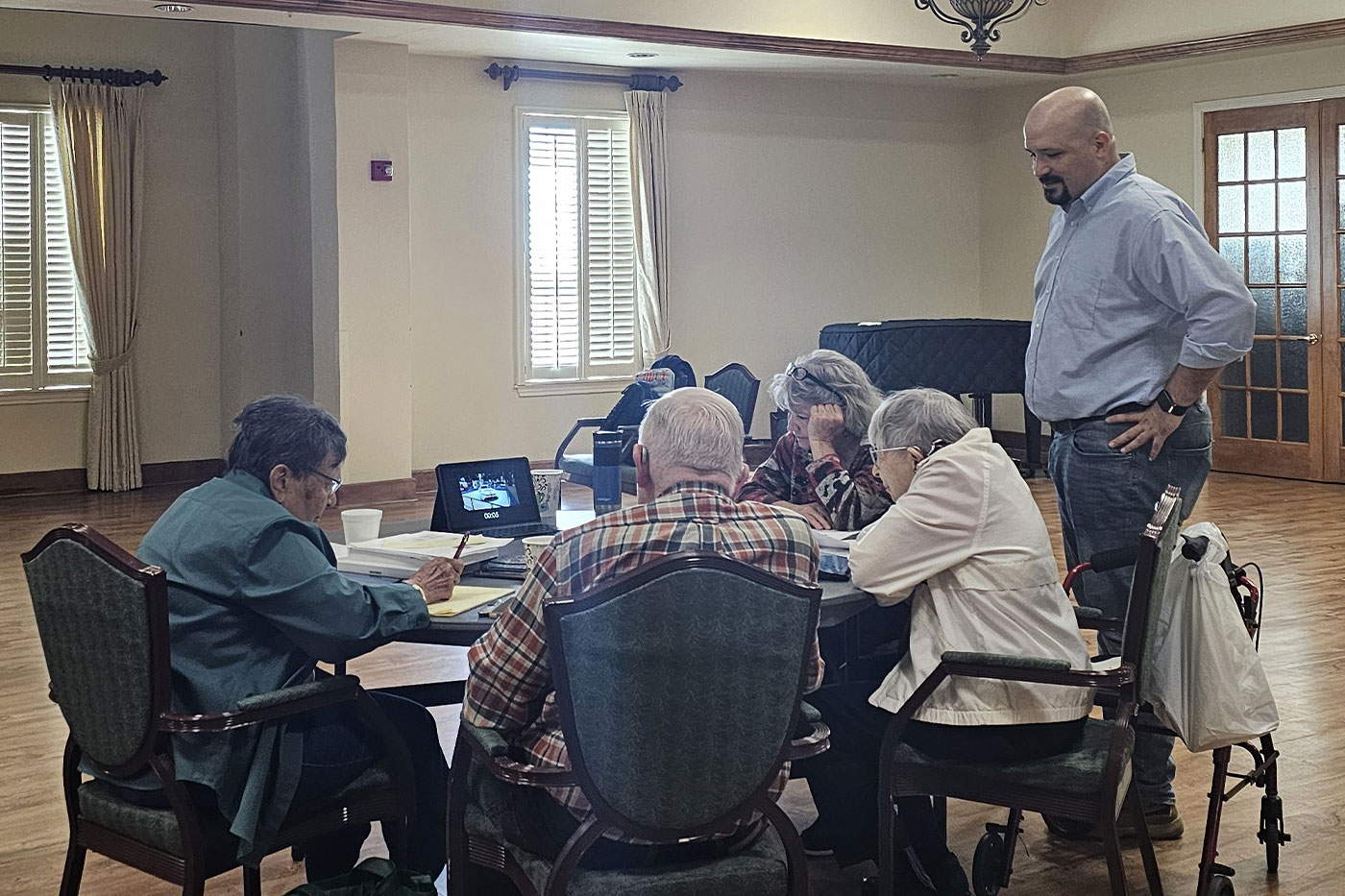
“There's going to be a number of people that want this kind of thing because we're not dead yet,” Helen chuckled. “We may not use everything they gave us in this course, but if we gained just two things out of it, I think that's an improvement for this stage of our life.”
Basdogan reiterates that being older and not tech-savvy makes a person more vulnerable to threats. Longevity is increasing and for that reason, everyone should continue learning.
“We have lots of reasons to be a lifelong learner,” Basdogan said. “I hope this work sparks curiosity and confidence, and maybe even inspires a broader awareness of what older adults can achieve with technology.”
Helen has seen that motivation to learn flourish in her fellow residents. When the group workshops came up this year, they filled up quickly, and she couldn't sign up for the first one. When the second one was posted, she jumped at the chance to continue learning.
“I admire these people for doing this,” Helen said, smiling. “They're looking at research, but they are also helping us ‘seasoned people.’”
Find out more about all the good work going on
at Texas Tech’s College of Education.

